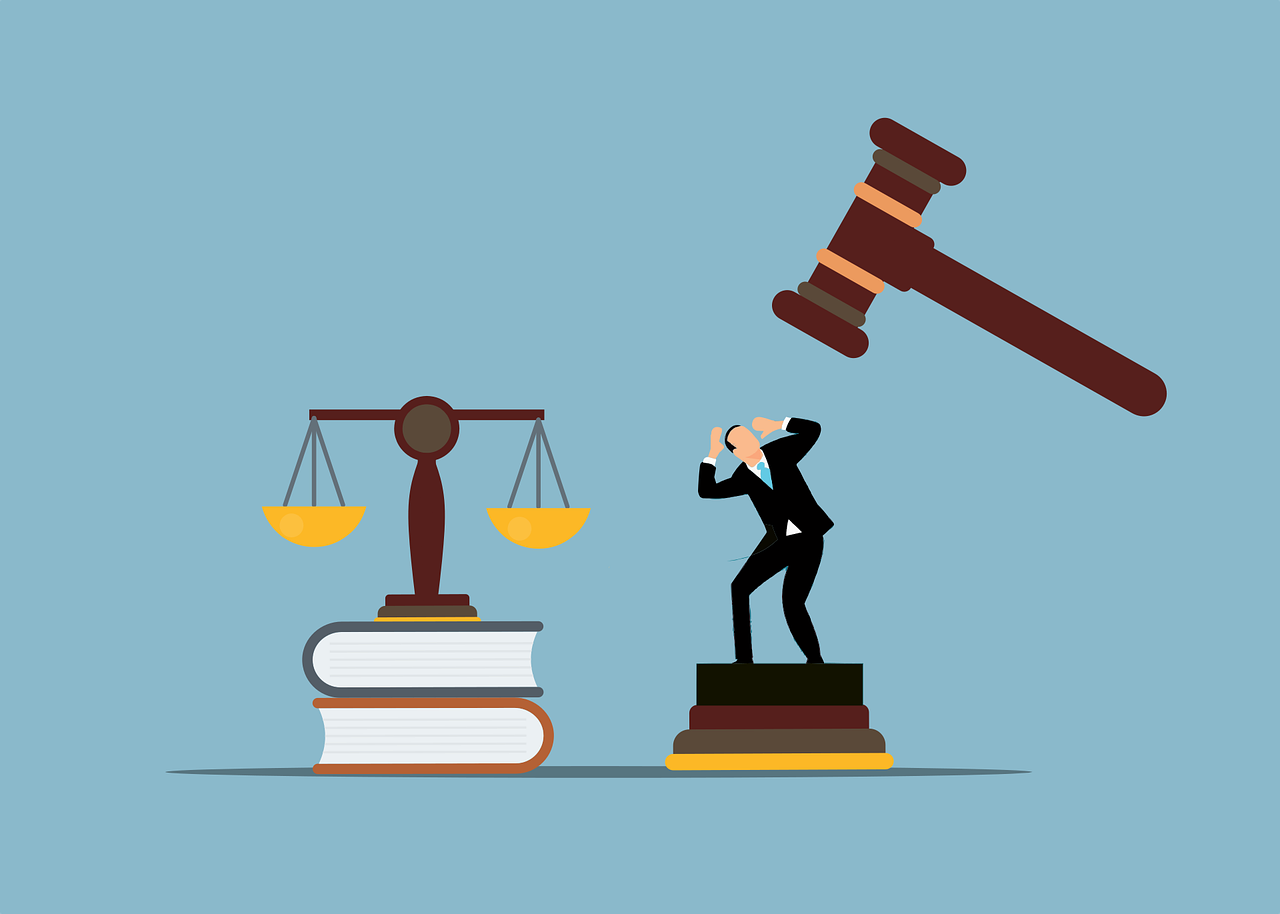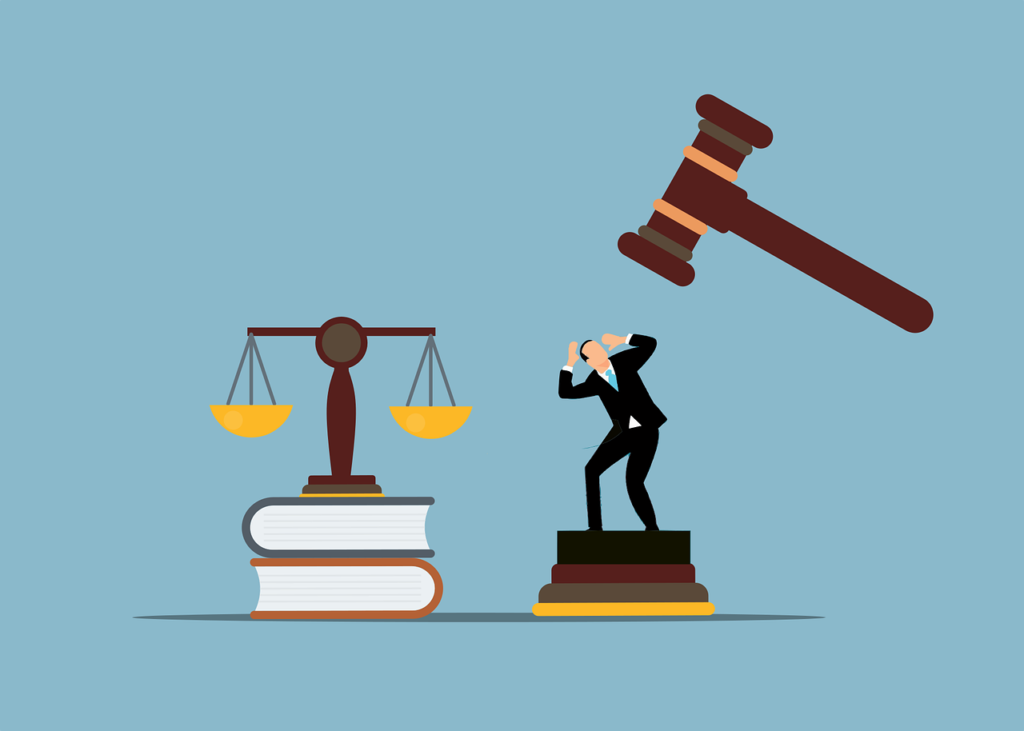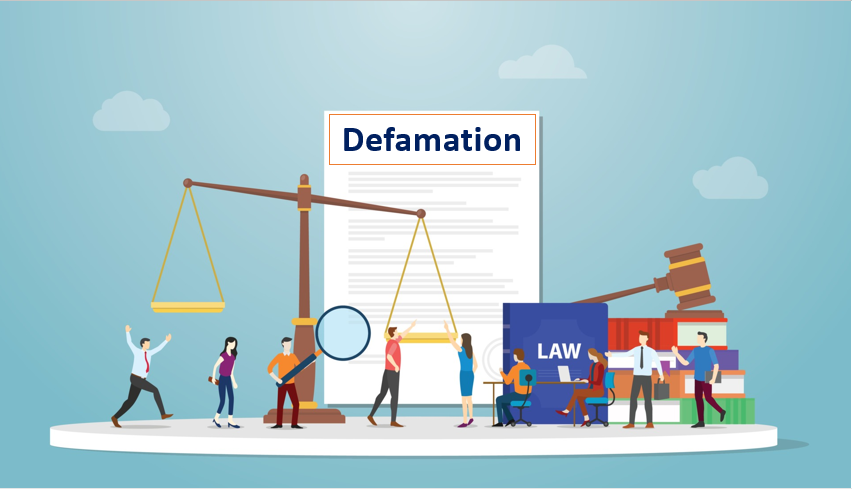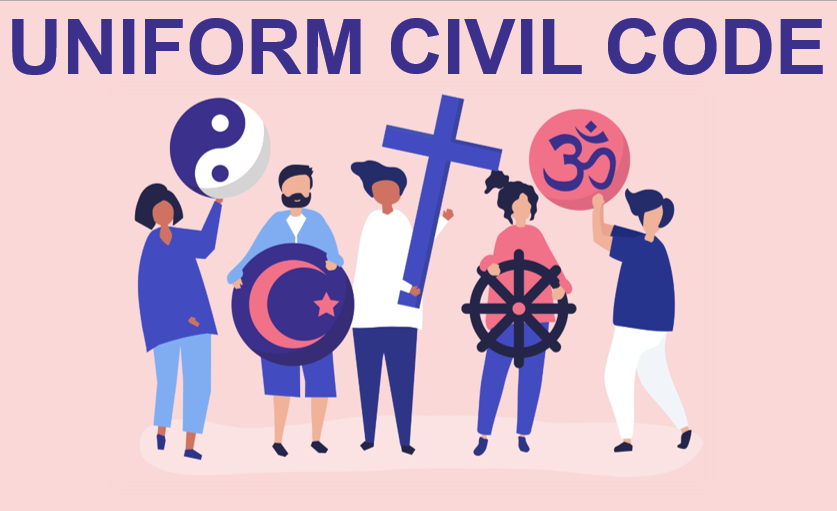Published On: 22nd June, 2024

Authored By: Suvrajeet Sahoo
SOA NATIONAL INSTITUTE OF LAW
ABSTRACT-
once the case has been decided or all appeals have been exhausted, the accused cannot be prosecuted or punished for the same offense twice because double jeopardy is a fundamental legal concept. The double jeopardy doctrine, a legal defense that forbids an accused person from being tried again for the same charges and circumstances following an acquittal or conviction, is covered in this study. The study also claims that Article 20(2) of the Indian Constitution contains the idea as a fundamental right. According to this view, every nation’s criminal justice system must adhere to the principle of double jeopardy in order to shield criminals from the trauma of retaliation. According to the study, the concept first appeared in late eighteenth-century English common law.
Keywords: Double jeopardy, Accused, Conviction, Charges
Introduction
After a valid acquittal or conviction, a legal defence known as the idea of double jeopardy prohibits an accused person from being tried again for the same charges and circumstances. Double jeopardy is a concept that comes from the Indian Constitution’s Article 20(2), which defines it. The Indian Constitution’s framers included it in Part III as one of our fundamental rights. The criminal justice system operates under the presumption that there are certain principles—like the double jeopardy principle, which upholds the system’s values—where compromise is not an option.[1]
Article 20 of the Indian Constitution, in general, addresses immunity from criminal convictions. Ex post facto legislation [Article 20(1)], double jeopardy [Article 20(2)], and self-discrimination [Article 20(3)] are the three protections against conviction for an accused individual.
The United States Constitution’s Fifth Amendment contains a double jeopardy clause. Defendants may still face charges in a civil court for the same offense; double jeopardy is only applicable in criminal courts. This article goes into great length about the history, key components, exclusionary conditions, international viewpoint with other countries, and case laws.[2]
Origin of the doctrine of double jeopardy
The English common law principle “Nemo bis punitur pro eodem delicto,” which states that “no one should be punished twice for the same offence,” is where the term “double jeopardy” originates. The common-law principle “Nemo debet bis vexari,” which states that “a man must not be put in peril twice for the same offence,” is where the term “double jeopardy” originates. To put it plainly, it means “punishment given more than once for the same offence” or “penalty twice.”
This idea, which is stated in one court and seems to be a part of English common law in addition to all other systems of jurisprudence, has no particular genesis and has always existed, according to the conclusion. The Greeks and Romans were familiar with the concept of double jeopardy, which was later recognized in Justinian’s Digest as the prohibition against the governor allowing the same individual to be tried and found guilty twice for the same offense. The criminal procedure was different then than it is now, with the prosecution having 30 days after an acquittal to arrest the prisoner.
There has been no discussion of the Magna Charta’s double jeopardy doctrine, therefore it cannot be inferred. Canon law is the common basis from which the doctrine of double jeopardy in continental and English legal systems has been derived. Canon law declared in 847 A.D. that no one may ever be judged again for the same offense, not even God. The Justinian Code has introduced this concept into Roman law.[3]
A number of countries, including the US, Canada, Mexico, and India, have recognized double jeopardy as a right guaranteed by their constitutions. Section 403 (1) of the previous Code of Criminal Procedure, which has been superseded by Section 300 Amendment, and Section 26 of the General Clauses Act of 1897 were the legal equivalents of double jeopardy in India. This notion was in place prior to the Indian Constitution’s creation. International documents that are recognized are Article 50 of the European Union Charter of Fundamental Rights, Article 4(1) Protocol 7 of the European Convention on Human Rights, and Article 14(7) of the International Covenant on Civil and Political Rights.
Regardless of whether they were found not guilty at the first trial, someone who has been tried for the same crime in the US or England cannot be tried again for the same crime. Nonetheless, under Article 20(2), an individual who has been found guilty and then found not guilty may face new charges and punishment in India. He or she may raise Article 20(2) as a defense if they were charged with and found guilty of the same crime. The Constitution’s Article 20(2) guards against double jeopardy. It specifies that no one may face multiple arrests and punishments for the same offense.
Protection against a conviction
The Indian Constitution’s Article 20 addresses protection in the event of a criminal conviction. It has to do with one of the essential liberties guaranteed by the Indian Constitution: the right to freedom. Articles 19, 20, 21A, and 22 safeguard the freedom of speech. Article 20 is a component of the right to freedom since it provides accused criminals with three different kinds of protections:
Ex post facto law [Article 20(1)]
A law that enhances the penalty for crimes previously committed and imposes penalties or convictions on them is known as an ex post facto law. The United States of America Constitution serves as the foundation for this. It has an impact in the past as well. It refers to situations in which a law imposes a penalty or punishment for an act that was not punishable at the time the offense was committed, or imposes a penalty in addition to what was stipulated at the time the offense was committed, or when there is a change in the standard of proof or the process that necessitates a conviction.
Double jeopardy [Article 20(2)]
No one should be put in danger twice for the same offense, according to the double jeopardy doctrine. Article 20(2) of the Indian Constitution states, “No individual shall be arrested and punished for the same offence more than once.” There are distinctions between the US and England, even though the theory originated with the US Constitution’s Fifth Amendment. The extent of protection in India is limited. The General Clauses Act of 1897 and Sections 26 and 300 of the Criminal Procedure Code of 1973 provide evidence that the theory was in place in India before the country’s constitution was drafted.
Self-discrimination [Article 20(3)]
Self-discrimination is forbidden by law because it states that “no person accused of any offence will be compelled to be a witness against himself.” The adage “Nemo tenetur prodere accusare seipsum,” which states that no one is required to place the responsibility on themselves, serves as its foundation. It has to do with whether confessions given under duress—which are not permitted to be used as evidence—are admissible. Moreover, no one will be forced to say anything that could be construed as self-harming or confessional words against themselves.[4]
Grounds for applicability of the doctrine of double jeopardy
In legal terms, jeopardy refers to the danger that defendants in criminal cases suffer, such as jail time or penalties. In three situations, double jeopardy has been stated as a valid defence:
The person must, first and foremost, face criminal charges. The General Clauses Act of 1897 provides a definition for the term “offence.” any action or inaction that would have been illegal under the current legal system.
There must have been an investigation or action before a court or judicial institution.
The individual needed to have been detained and punished during the previous procedure.
The same offense for which he was previously found guilty and given a sentence must be committed.[5]
Judicial Analysis on the Doctrine of Double Jeopardy
The maxim “nemo debet bis vexari si constat curiae quod sit pro una et eadem causa,” which states that no one should be vexed twice if it appears to be for the same cause, is embedded in the doctrine of double jeopardy, according to the observations made by Indian courts in their rulings in a number of cases. In the 2001 case Union of India v. P.D. Yadav, the court made this declaration. In following rulings, the courts looked into and defined a few specific aspects of the idea.[6]
It is evident from the rulings that an investigation differs from a prosecution. This was stated in the 1954 case of Venkataraman v. Union of India, in which the accused was sacked from his position and the inquiry commissioner conducted an investigation. He was charged with breaking both the 1988 Prevention of Corruption Act and the Indian Penal Code, 1860, after being fired. He claimed double jeopardy, but the Supreme Court rejected the argument, ruling that the charges may proceed because the inquiry commissioner’s probe to terminate his employment did not qualify as prosecution.
However, the application of the double jeopardy theory is limited to situations in which the punishment is meted out for the same offense. In the case Leo Roy v. Superintendent District Jail (1957), the Supreme Court held that even though the defendant had been tried and found guilty under the Sea Customs Act, 1878, they could be tried again under the Indian Penal Code, 1860 because there were two different charges and offenses. This case illustrates how the doctrine cannot be applied when the offenses are of a different nature.[7]
International laws
In addition to state-specific legislation, the concept of double jeopardy is included in the majority of international treaties and legislation. For instance, “No one shall be liable to be tried or punished again for an offence for which he has already been finally convicted or acquitted in accordance with the law and penal procedure of each country,” according to Article 14(7) of the ICCPR. Comparably, no one shall be tried or punished in criminal proceedings for an offence for which he or she has already been found guilty or found not guilty in the end, according to Article 4 of Protocol No. 7 to the ECHR Convention. Likewise, Article 20(3) and Article 8(4) of the Inter-American Convention on Human Rights.[8]
England
Following Stephen Lawrence’s murder, the Macpherson Report recommended that the double jeopardy rule be eliminated in murder cases and that an acquitted murder suspect may be retried in the event that “fresh and valid” new evidence becomes available at a later time. The Law Commission finally supported this finding in 2001 in its report “double jeopardy and Prosecution Appeals.” In the event that previously unknown “new, compelling, reliable, and significant evidence” becomes revealed, the suspected suspect may face a second trial in light of the altered circumstances.[9]
Germany
Article 103(3) of the German Constitution mentions the notion of double jeopardy, which forbids punishments under general legislation for the same offense committed more than once.[10]
Japan
Double jeopardy is covered in Article 39 of the Japanese Constitution. It declared that no one could be placed in double jeopardy and that no one could be legally punished for an act that was done lawfully in the first place or for which he was found not guilty.[11]
Case laws regarding the doctrine of double jeopardy
Maqbool Hussain v. State of Bombay, 1953[12]
Facts of the case
The petitioner in this instance, an Indian national, traveled from Jeddah to Santa Cruz Airport in Bombay. When he was searched, it was found that he had carried 1250.361 grams of gold with him, even though he had not disclosed this to the Indian authorities. In accordance with Sea Customs Act VIII of 1878’s Article 167, Clause (8), the gold was taken by the Customs Authorities. However, the owner of the gold might choose to pay a fine of 12,000 rupees, which was to be done within four months of the order’s date. A copy of the order was sent to the appellant, but nobody showed up to claim the gold. The Indian Supreme Court mandated that the Bank take the plea into consideration.
Issue of the case
The issue is whether a plea of double jeopardy may be supported by the Sea Customs Act, 1878 and a court or judicial tribunal order.
Judgment
Because the prior imprisonment under the Sea Customs Act of 1878 did not constitute a ruling or order of a court or judicial body to support the double jeopardy claim, the prosecution under the Foreign Regulation Act of 1947 was upheld.
Thomas Dana v. State of Punjab, 1959[13]
Facts of the case
In this instance, the petitioners were detained by the police while attempting to smuggle a sizable quantity of foreign and Indian currency as well as other illegally imported goods out of India. The Collector of Central Excise and Land Customs issued orders confiscating the seized goods and imposing heavy personal penalties on both petitioners.
The petitioners were found guilty and sentenced by the Additional District Magistrate. An appeal to the Supreme Court was the outcome of this.
Judgment
The following conditions must be satisfied, according to the Supreme Court, in order to request protection under Article 20 (2).
1.that a prior prosecution occurred.
2.This led to the accused’s punishment.
3. the punishment was meted out for the identical offense.
Conclusion
To sum up, the concept of double jeopardy is a fundamental component of legal systems across the globe, protecting citizens’ rights and averting possible misuses of state authority. This principle, which is based on the defense against repeated prosecutions or penalties for the same act, is fundamental to fostering trust in government institutions and maintaining the essence of the following.[14]
Genuine spirit of fairness and public involvement. Furthermore, the legal systems of nations like Germany, the United Kingdom, and India demonstrate the various strategies and subtleties used to preserve the vital double jeopardy protection and highlight the widespread acceptance of this idea as a necessary component of the pursuit of justice.
Essentially, the idea of double jeopardy acts as a sentinel against the specter, spanning both national and international borders.[15]
Every accused person has the right to file at least one appeal following a conviction. An acquittal occurs when the conviction is ruled unlawful on appeal for lack of evidence, and no more prosecution is permitted. Article 20(2) of the Indian Constitution addresses the notion of double jeopardy and permits departmental inquiries to be conducted prior to or subsequent to the initiation of criminal prosecution. As such, this idea is crucial to our legal system once someone has been found guilty and sentenced. Throughout the world, legal systems have adopted the doctrine.[16]
Reference:-
- https://blog.ipleaders.in/the-doctrine-of-double-jeopardy/
- https://thelawtree.akmllp.com/lawtitude/navigating-boundaries-understanding-double-jeopardy-in-criminal-and-civil-proceedings/
- https://www.ijcrt.org/papers/IJCRT2301244.pdf
- https://www.worldwidejournals.com/international-journal-of-scientific-research-(IJSR)/recent_issues_pdf/2015/November/November_2015_1492854304__41.pdf
- https://papers.ssrn.com/sol3/papers.cfm?abstract_id=1303324
- https://ir.nbu.ac.in/bitstream/123456789/3078/1/March2015_17.pdf
[1]Michael shriney,”the doctrine of double jeopardy”< https://blog.ipleaders.in/the-doctrine-of-double-jeopardy/> accessed on 11 may 2024
[2] Ibid,1
[3] Ibid,1
[4] Sachin Sehdev, Dr. Amritpal Kaur,” Double Jeopardy in India: An Analytical Study”< https://www.ijcrt.org/papers/IJCRT2301244.pdf> accessed on 6th april2024
[5] Dr. Sandeep Kumar,” Double Jeopardy Jurisprudence in India” https://www.worldwidejournals.com/international-journal-of-scientific-research-(IJSR)/recent_issues_pdf/2015/November/November_2015_1492854304__41.pdf accessed on 12 November 2015
[6] Tirthankara das, “A discussion on double jeopardy in india”< https://papers.ssrn.com/sol3/papers.cfm?abstract_id=1303324> accessed on November 18, 2008
[7] ibid
[8] https://thelawtree.akmllp.com/lawtitude/navigating-boundaries-understanding-double-jeopardy-in-criminal-and-civil-proceedings/
[9] ibid
[10] ibid
[11] ibid
[12] Maqbool Hussain v. State of Bombay, 1953
[13] Thomas Dana v. State of Punjab, 1959
[14] Caesar Roy,” Protection Against Double Jeopardy in India – A Critical Analysis”< https://ir.nbu.ac.in/bitstream/123456789/3078/1/March2015_17.pdf> accesed on 12 october 2018
[15] Ibid, 6
[16] Ibid,8



